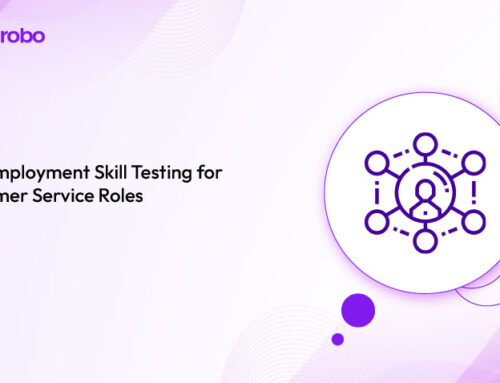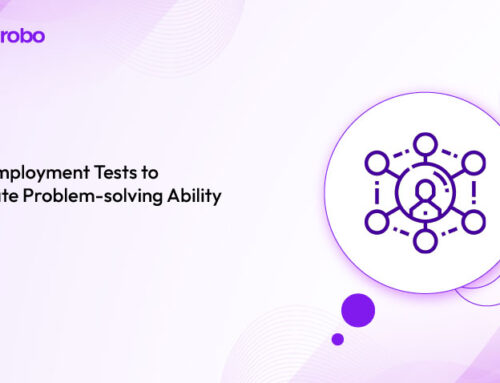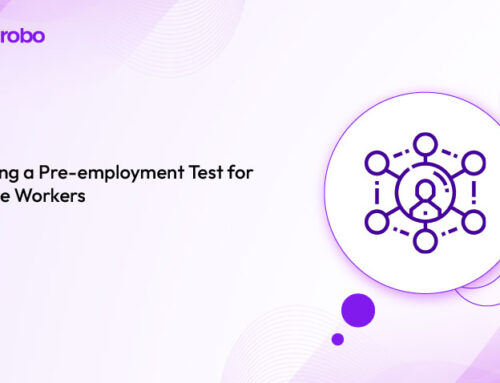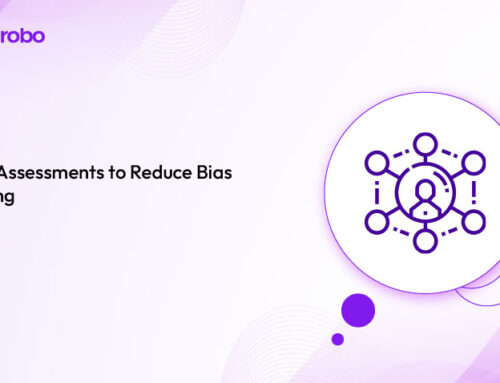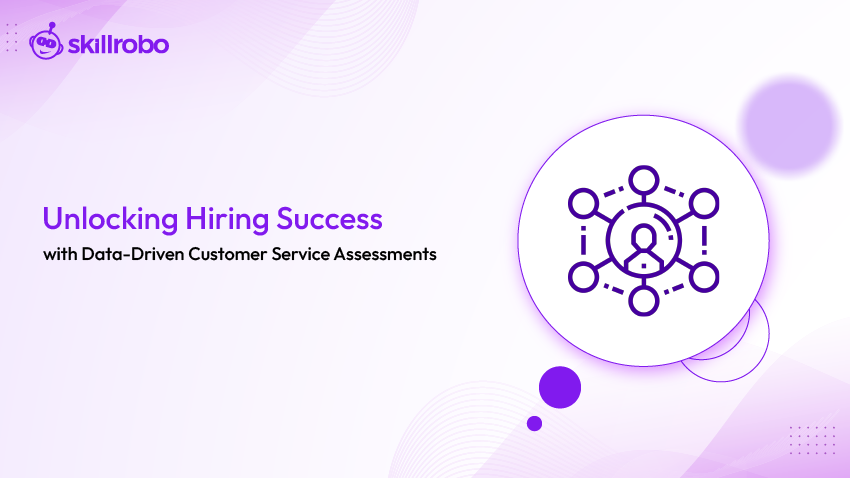
Key Takeaways
- Customer service skills assessments objectively evaluate key competencies such as empathy, communication, and conflict resolution.
- These assessments enhance hiring decisions by identifying candidates who excel in customer-centric roles.
- Data-driven testing helps reduce bias and improves employee retention through better job fit.
- Pre-employment test software streamlines test creation, customization, and integration into existing hiring processes.
Unlocking the Potential of Customer Service Talent
In an increasingly competitive market, hiring top-notch customer service talent is crucial for any organization looking to build lasting relationships with its clients. Traditional interviews and resumes often fail to capture a candidate’s true ability to connect with customers and resolve issues effectively. This is where customer service skills assessments come into play. These tests delve into core competencies—such as empathy, communication, problem-solving, and technical know-how—that are vital for delivering exceptional customer experiences.
By leveraging data-driven insights, organizations can objectively measure a candidate’s potential, ensuring that they not only fit the role but also contribute to long-term success. In diverse regions across the United States—from fast-paced urban centers to suburban markets—companies have experienced noticeable improvements in employee retention and overall performance when they integrate these assessments into their recruitment processes.
This blog will explore the fundamentals of customer service skills assessments, outline their strategic benefits, and offer a detailed guide on creating effective tests using modern pre-employment software—all designed to empower HR professionals in making informed hiring decisions.
Understanding Customer Service Skills Assessment Tests
Customer service skills assessments are standardized tools designed to evaluate a candidate’s abilities in areas critical to customer-facing roles. Unlike generic cognitive tests, these assessments focus on the specific skills that drive successful interactions with customers.
Core Competencies Evaluated:
- Empathy: Measures the ability to understand and relate to customer needs, fostering positive interactions.
- Communication: Evaluates clarity, tone, and effectiveness in both verbal and written exchanges.
- Problem-Solving: Assesses the capability to quickly identify issues and implement practical solutions.
- Technical Proficiency: Tests familiarity with customer service platforms, CRM systems, and digital communication tools.
- Conflict Resolution: Examines how candidates handle challenging situations and de-escalate conflicts.
For instance, an empathy-based question might present a scenario where a customer is frustrated with a service delay and asks the candidate to choose the best response. Similarly, a communication question may require the candidate to draft an email that addresses a client’s concern clearly and professionally. These targeted assessments provide a comprehensive picture of how well a candidate can manage the demands of customer service roles.
The Strategic Benefits of Customer Service Assessments
Integrating customer service skills assessments into your hiring process offers numerous strategic benefits that directly impact organizational performance. Companies have found that when these assessments are used, employee turnover can decrease significantly, and overall job performance tends to improve—often by as much as 50% in competitive markets. In fact, a survey of US-based companies in major markets like New York, Los Angeles, and Chicago revealed a 30% improvement in first-call resolution rates after implementing these assessments.
By evaluating candidates based on measurable skills rather than solely on subjective impressions, organizations are better positioned to identify those who can deliver exceptional service. This approach not only ensures a better match between the candidate and the job but also promotes a fairer, more transparent hiring process. In regions known for their diverse customer bases, companies that implement these assessments report improved team cohesion and enhanced customer satisfaction. The result is a workforce that is more capable, responsive, and aligned with the company’s customer service standards.
Exploring the Dimensions of Customer Service Assessments
Customer service roles require a multifaceted set of skills. Effective assessments should cover several key dimensions, each addressing a different aspect of customer interaction. Here’s an in-depth look at these dimensions:
1. Empathy and Emotional Intelligence
Empathy is the cornerstone of excellent customer service. Assessments in this area measure a candidate’s ability to understand customer emotions and respond appropriately. Scenarios may include handling an irate customer or offering support during a stressful situation. These tests ensure that candidates can build rapport and create a positive customer experience. Dark Empath test can be leveraged to assess a candidate’s ability to understand other’s emotion.
2. Communication Skills
Clear and effective communication is essential in any customer service role. Tests in this category evaluate both written and verbal skills, challenging candidates to articulate solutions, explain policies, and convey empathy through words. For example, a task might require a candidate to rewrite a poorly worded customer complaint into a clear and empathetic response.
3. Problem-Solving Abilities
Customer service often involves resolving unexpected issues. Assessments here are designed to evaluate how candidates approach problem-solving. Tasks may involve scenario-based questions where candidates must choose the best course of action from several options, demonstrating their ability to think quickly and efficiently under pressure.
4. Technical and Platform Proficiency
In today’s digital age, customer service representatives must be adept at using various tools and platforms. Assessments can test familiarity with CRM software, live chat systems, and social media platforms. These questions ensure that candidates can navigate the digital landscape, making them more effective in roles that require a blend of technical know-how and interpersonal skills.
5. Conflict Resolution and Stress Management
Handling conflict and managing stress are critical skills in customer service. Assessments in this area may include situational judgment tests where candidates are presented with challenging customer interactions and asked to determine the best way to de-escalate tension and resolve issues. This not only tests conflict resolution skills but also gauges the candidate’s ability to remain calm under pressure.
Best Practices for Implementing Customer Service Assessments
To maximize the effectiveness of customer service skills assessments, HR professionals should consider the following best practices:
1. Tailor Assessments to Role-Specific Competencies – Clearly define the skills that are most relevant to the customer service role in question. For example, entry-level roles might prioritize basic communication and problem-solving, while senior positions might require advanced conflict resolution and technical proficiency.
2. Use Validated and Reliable Testing Tools – Ensure that the assessment tools you use have been rigorously tested and validated. Reliable tests are crucial for accurately predicting job performance and for defending hiring decisions.
3. Integrate Real-World Scenarios – Design tests that simulate real-life customer interactions. By incorporating situational judgment tasks and role-play scenarios, you can better assess how candidates will perform in actual work situations.
4. Provide Clear Instructions and Feedback – Transparency is key. Make sure candidates understand the purpose of the assessment and how it will be used. Offering constructive feedback—whether as part of the testing process or post-assessment—can also improve candidate experience and engagement.
5. Regularly Review and Update Assessments – The customer service landscape is constantly evolving. Regularly review your assessments to ensure they remain relevant and free from bias, and adjust them based on emerging industry trends and feedback from hiring managers.
6. Leverage Data Analytics – Use data analytics to correlate assessment scores with on-the-job performance. This ongoing evaluation helps refine your testing process and provides valuable insights into the effectiveness of your hiring strategies.
7. Train HR Teams on Interpretation – Provide training for HR professionals on how to interpret assessment results. Understanding the nuances of test scores can significantly enhance the decision-making process and help identify areas for candidate development.
Additionally, research from US organizations in the retail and technology sectors indicates that using these assessments leads to a 20% increase in overall employee engagement, contributing to a more motivated and effective workforce.
How to Create a Customer Service Skills Assessment Using Pre-Employment Test Software
Designing a customer service skills assessment tailored to your organization’s needs is made easier with modern pre-employment test software. Follow this step-by-step guide to build an effective assessment:
Step 1: Define the Role and Its Requirements
- Identify the key responsibilities of the customer service role.
- Determine which skills (e.g., empathy, communication, technical proficiency) are essential for success.
Step 2: Select Relevant Test Formats
- Choose a mix of assessment types that best reflect the required competencies, such as situational judgment tests, written communication tasks, and technical skills quizzes.
- Allocate appropriate weightings to each section based on the role’s priorities.
Step 3: Customize Your Test Content
- Utilize pre-built templates available in your test software as a starting point.
- Tailor the questions to mirror real-life scenarios that your customer service team frequently encounters, ensuring relevance and practical application.
Step 4: Pilot the Assessment
- Run a trial with a small group of current employees or a sample of candidates.
- Collect feedback on question clarity, difficulty, and overall test structure, and refine the assessment accordingly.
Step 5: Analyze and Validate Results
- Use the analytics tools provided by the software to review test scores and correlate them with performance metrics.
- Benchmark these results against known performance indicators to ensure that the test accurately predicts job success.
Step 6: Integrate Into Your Hiring Process
- Seamlessly embed the assessment into your overall recruitment workflow.
- Ensure that the test complements other evaluation methods, providing a well-rounded view of each candidate’s abilities.
Following these steps will help you build a robust and effective customer service skills assessment that enhances your hiring process and drives better long-term outcomes.
Conclusion
Customer service skills assessments offer a powerful, data-driven approach to identifying the right talent for your organization. By objectively evaluating core competencies such as empathy, communication, and problem-solving, these tests provide valuable insights that go far beyond traditional hiring methods. As companies across various regions have experienced, integrating these assessments into the recruitment process can lead to improved employee retention, better job performance, and a more resilient workforce.
Ready to enhance your hiring process? Explore our pre-employment test software today and discover how a tailored customer service skills assessment can transform your recruitment strategy. Sign up and take the first step toward building a high-performing, customer-centric team.
Table of content
- Key Takeaways
- Unlocking the Potential of Customer Service Talent
- Understanding Customer Service Skills Assessment Tests
- The Strategic Benefits of Customer Service Assessments
- Exploring the Dimensions of Customer Service Assessments
- Best Practices for Implementing Customer Service Assessments
- How to Create a Customer Service Skills Assessment Using Pre-Employment Test Software
- Conclusion



